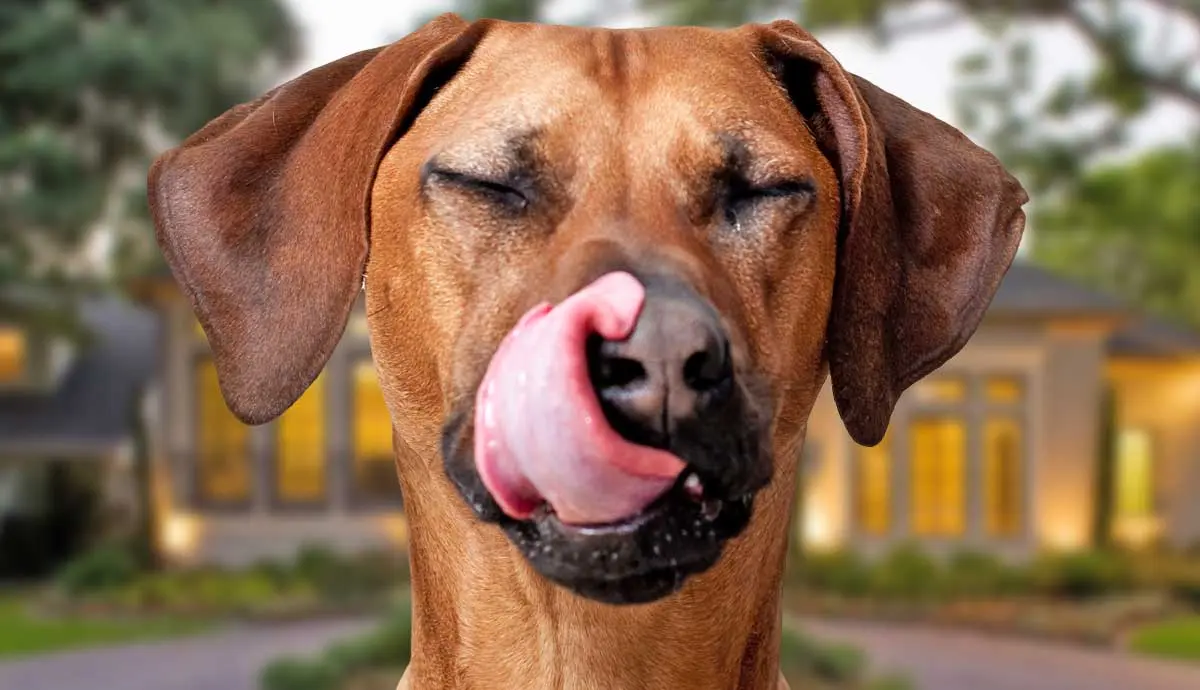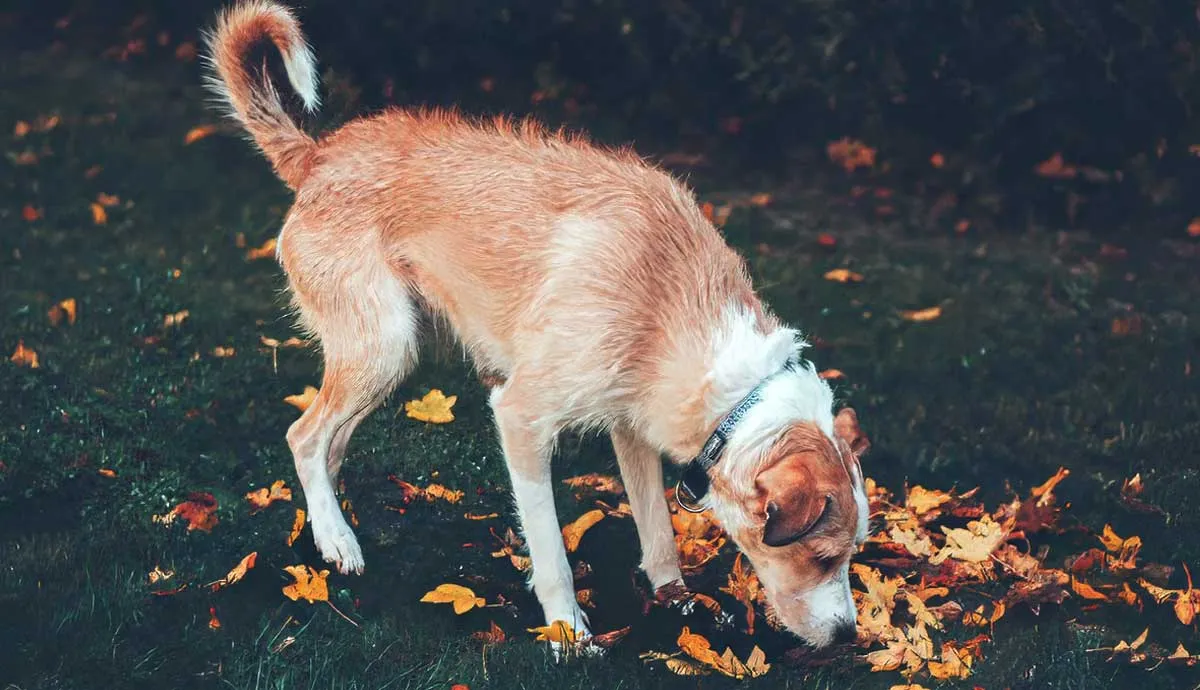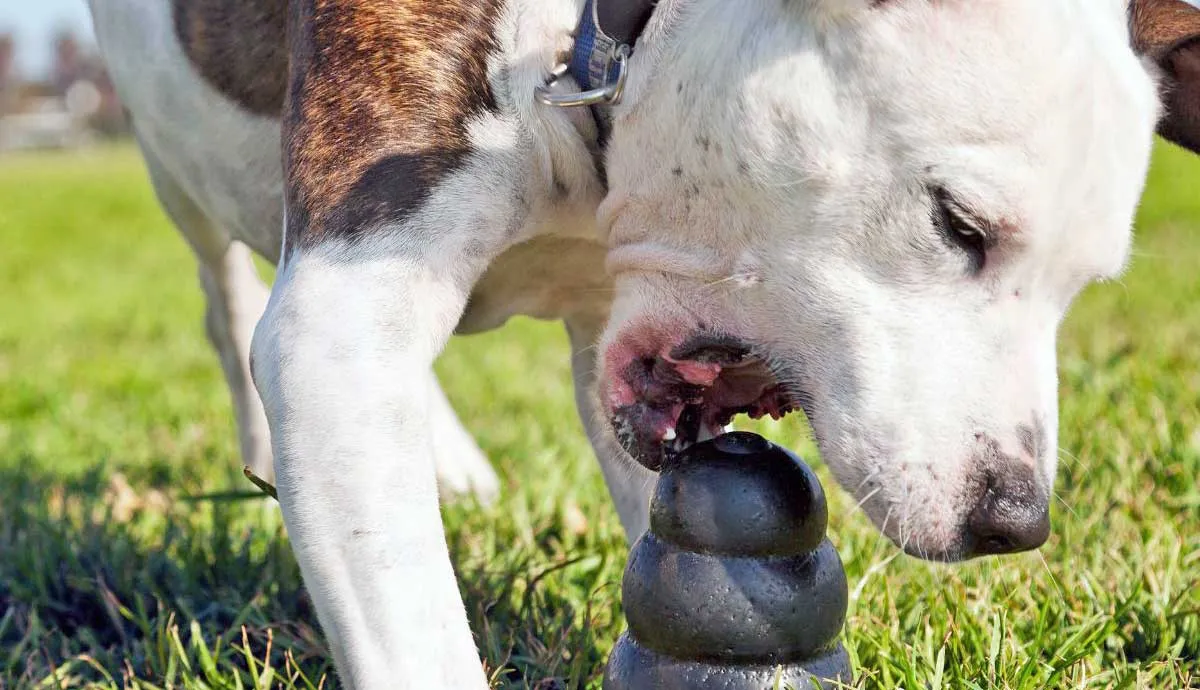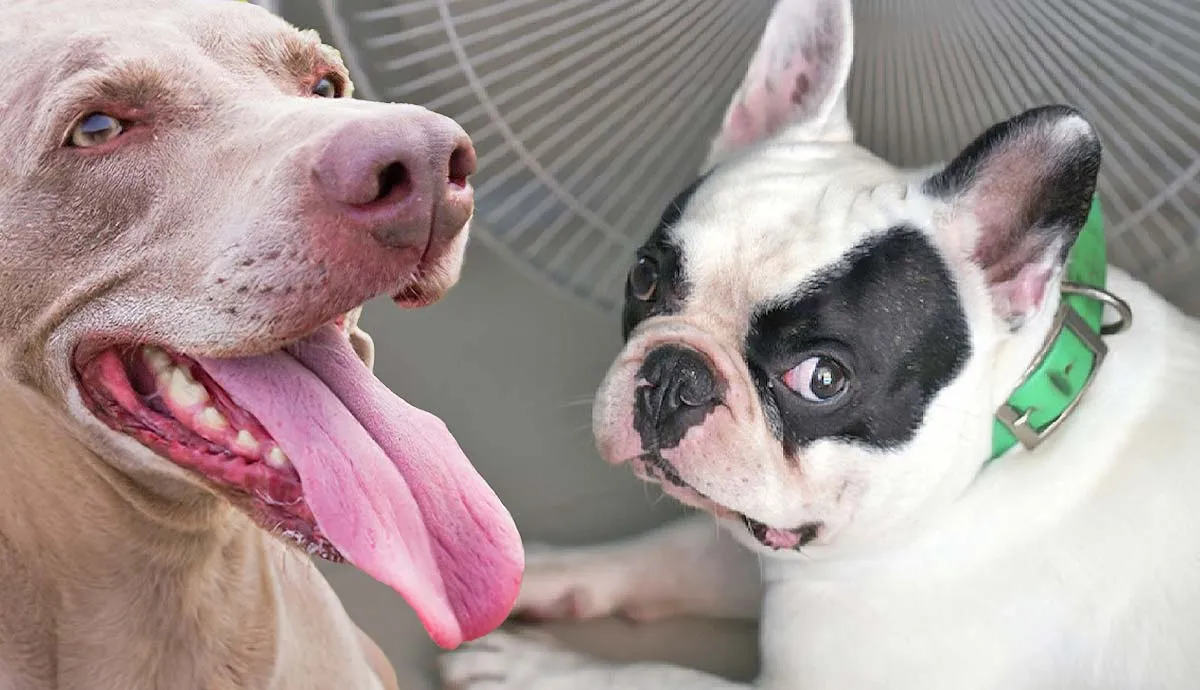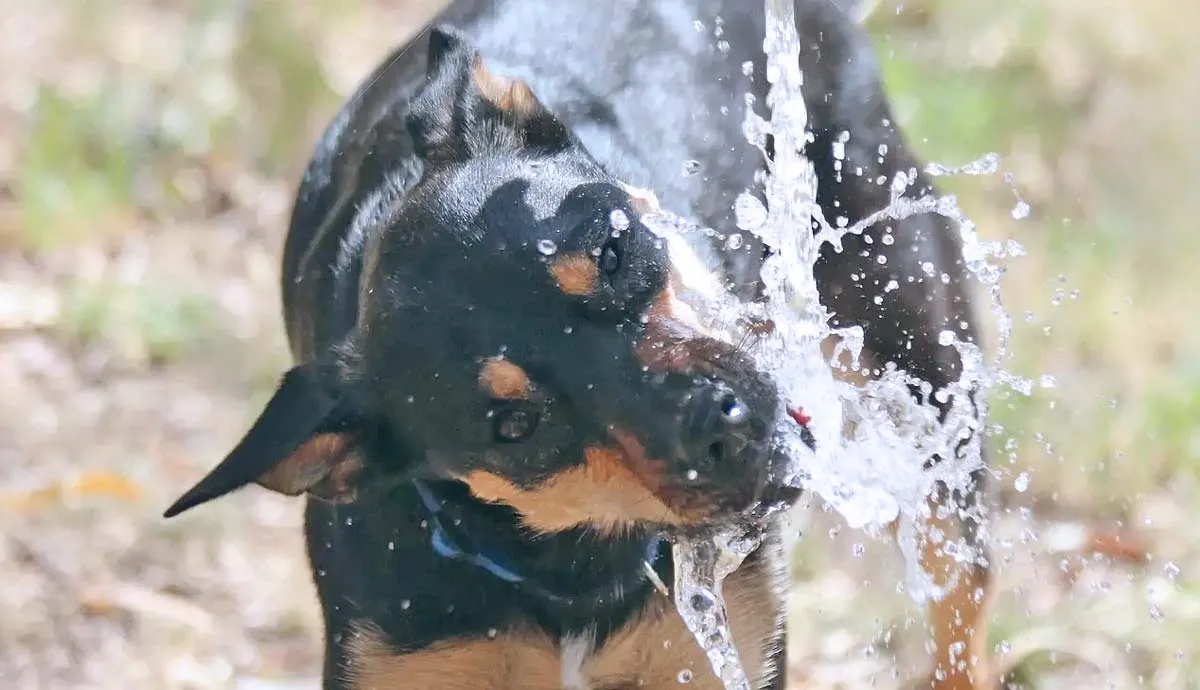You may have noticed your dog licking itself incessantly lately. If so, you may wonder what could cause this excessive licking.
Excessive licking is usually a way for your dog to self-soothe if they are in pain, are bored, or have anxiety. However, constant licking can also be a sign of allergies, skin irritations, and parasites.
Read on to learn about the causes of your dog licking itself.
Dogs Sometimes Lick When They’re in Pain
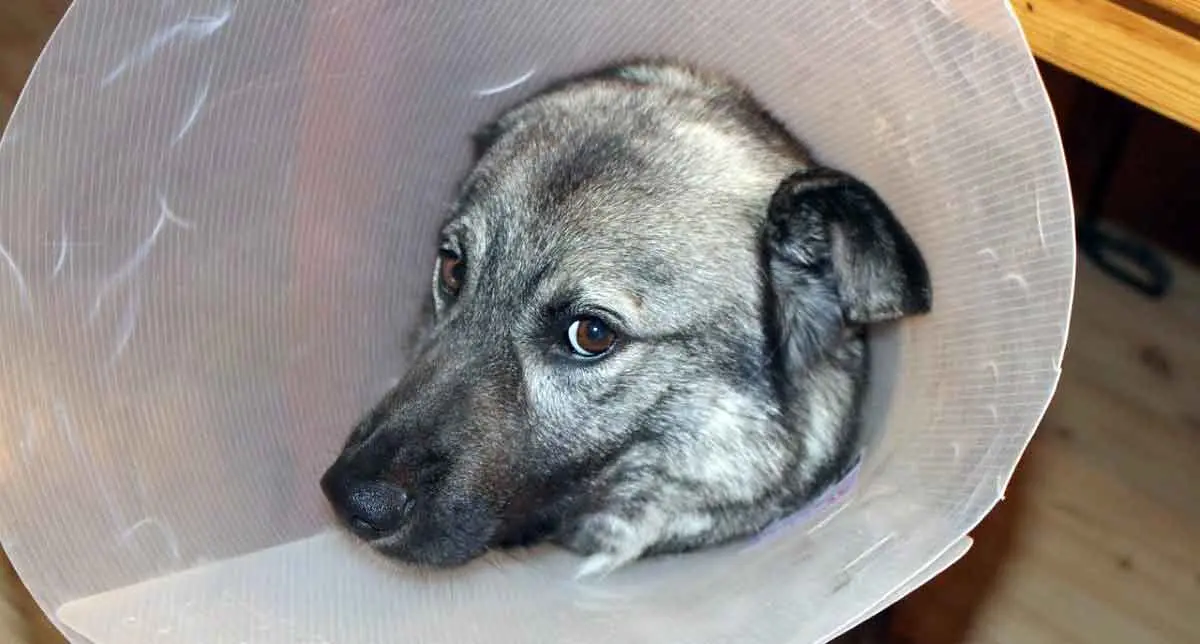
Some licking is a normal process for dogs. The most common areas that dogs lick are in between their toes, over joints, and on their forearm and bellies. Dogs lick themselves to groom, heal wounds, and soothe pain.
A little licking doesn’t hurt your dog, but according to PetMD, if your canine is licking so much that he is losing hair in that area, can’t sleep, or stops playing to lick the area, this may be a concern. They will often do this after surgery, such as a spay or neuter. Dogs may also lick an area so excessively that it causes a wound (called “hotspots”).
The first thing to look for is if your dog has any open cuts or swollen areas where they are licking. If you notice any injuries, it is important to clean the area thoroughly with soap and water and wrap the wound with a bandage to keep your dog from messing with it. You may also consider an E-collar.
If the wound is oozing puss, is red and swollen, or appears to need stitches, consult a veterinarian.
Some Dogs Self-Soothe Through Licking
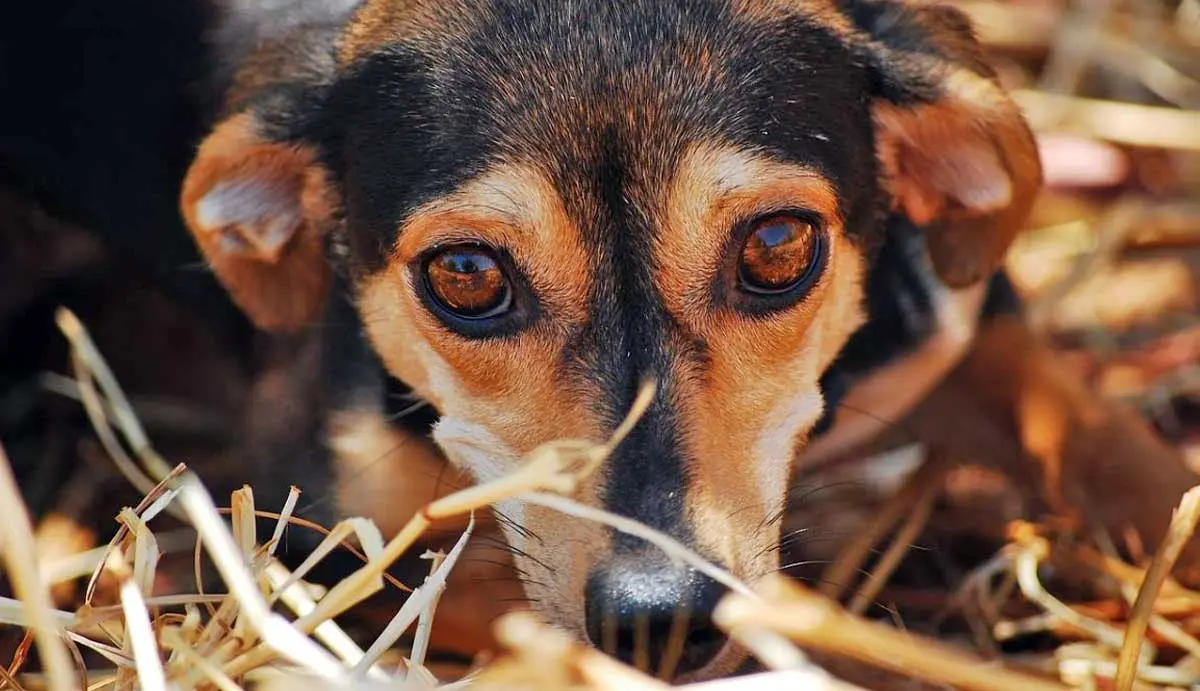
Dogs with anxiety may also lick excessively. Some dog breeds are more anxious than others. An anxious dog exhibits the following signs:
- Panting
- Pacing
- Trembling
- Drooling
- Withdraw from owner
- Hiding
- Irritability
- Aggression
- Tail tucked
- Ears back
- Eyes dilated
If you notice that your dog is licking itself incessantly and is showing several of the above signs, you must determine what is causing your dog anxiety. Some forms of anxiety are short-lived, such as during fireworks. You can try calm-down methods to help your dog through these issues.
A Bored Dog May Lick Itself for Fun
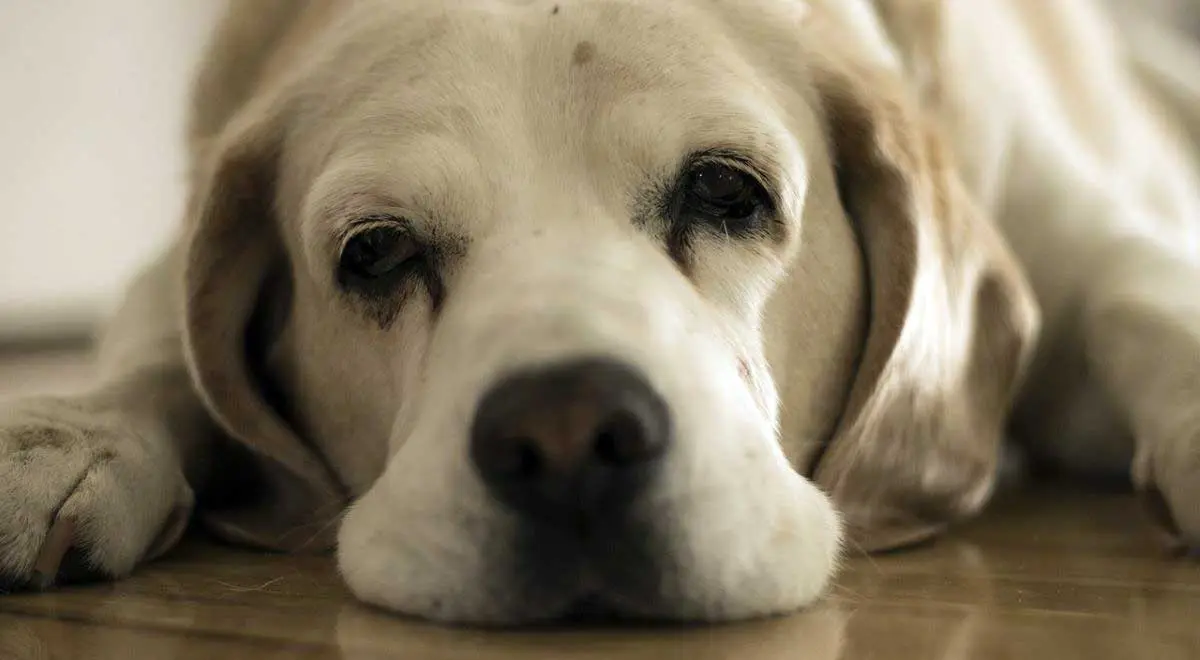
Bored dogs sometimes will pass the time by licking themselves. You would notice this behavior when they are idle. The best way to keep them from overgrooming themselves due to boredom is to provide your dog with plenty of mental stimulation. You should give your dog exercise daily and engage them in activities to keep their mind active, such as obedience classes, sports, and puzzle toys.
There are several breeds of dog that thrive on mental stimulation. These dogs need lots of engaging tasks to keep their minds occupied. Huskies, Border Collies, and German Shepherds are just a few dog breeds that become easily bored without jobs.
Some Dogs Lick Because of Allergies
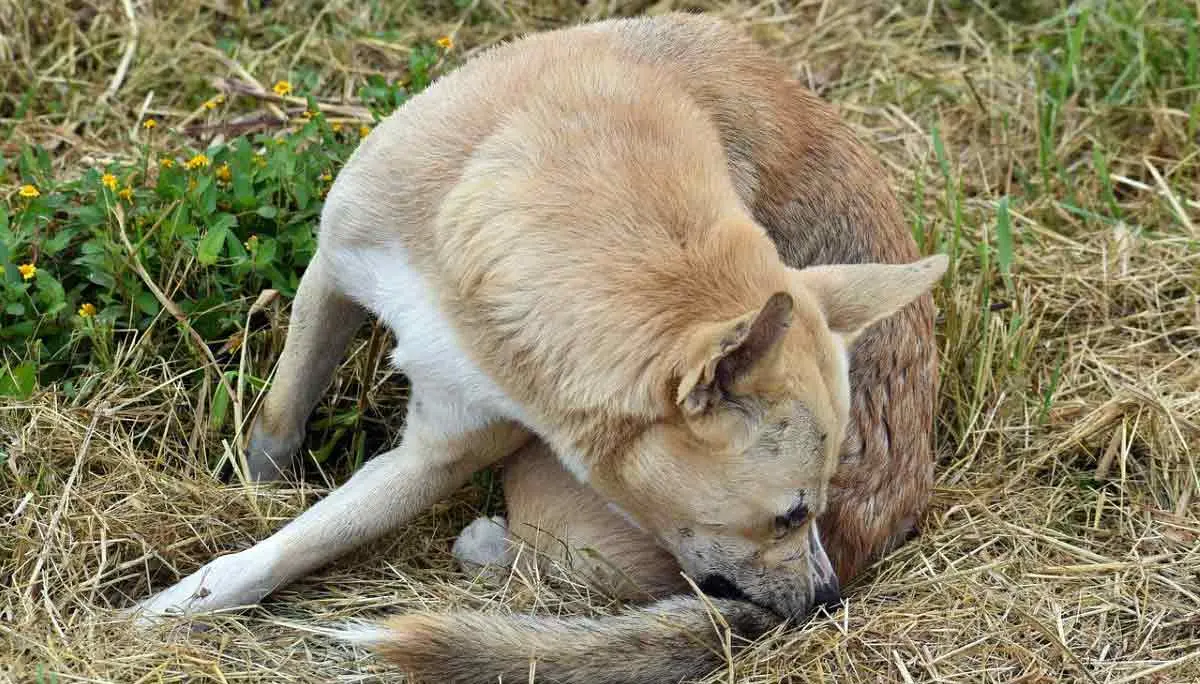
Another reason a dog may lick themselves excessively is due to allergies. Your dog may be dealing with a lot of itchiness that prompts them to lick the area. Dogs can have allergies to the environment or to food that can cause skin irritations.
If something in their environment is bothering them, you can attempt to remove the allergen. If you can’t remove the allergen, like in the case of pollen, your dog may need some antihistamines to help fight the allergic reaction. Vets may also prescribe antibiotics and anti-itch treatments to prevent your dog from suffering due to their allergies.
You can also use wipes and shampoo to minimize your dog’s exposure to the allergen. In the case of food allergies, your doctor may make dietary recommendations––such as avoiding chicken or other common allergens.
Skin Irritation Can Lead to Licking
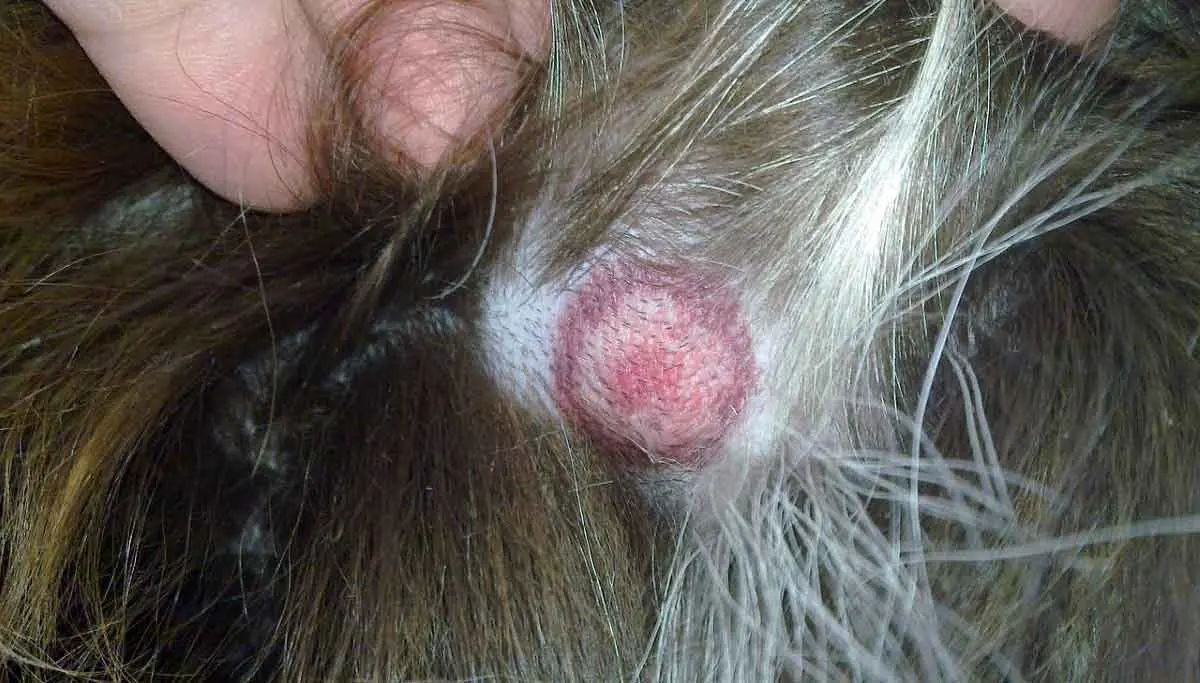
Bacteria and fungus can also cause your dog to itch, which may lead to them licking excessively. Bacterial infections usually appear as red areas with a discharge.
Yeast grows in warm, moist areas like between the toes, in the groin area, and inside the ears. It can cause a brownish-red discharge.
Other fungal infections like ringworm form a pattern of hairlessness and redness on the skin. Your vet can examine your dog and determine what skin irritation is causing the issue and prescribe the best treatment.
Dogs May Lick Because of Parasites
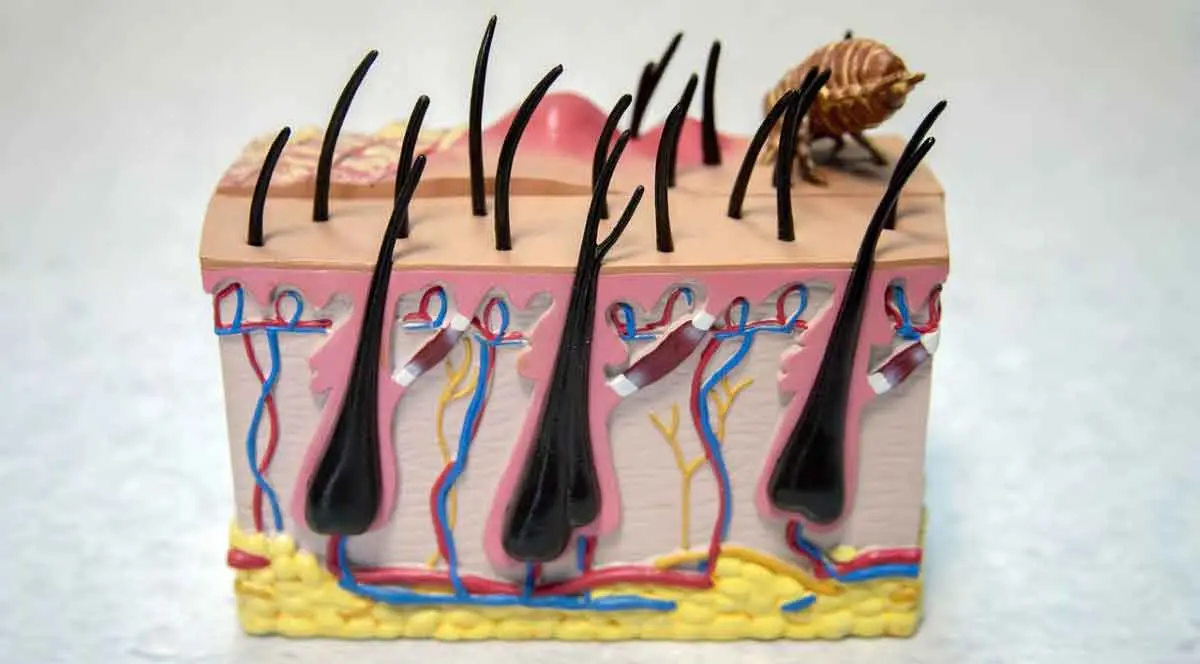
Finally, parasites can cause your dog to lick itself more than usual. Fleas and mites can create itchy spots on the skin that irritate your pup. If you notice your dog licking excessively and he has fleas, then you should treat him for this parasite.
It is more difficult to tell if your dog has mites. Excessive scratching, red skin, hair loss, and dandruff are the major signs of mite infestation. A vet can effectively diagnose whether or not your dog has mites by studying a bit of your dog’s skin under a microscope. Then, they can prescribe an effective treatment.
There are other types of parasites that may also affect your dog. Some parasites can be transmitted to humans, so quick treatment can ease your dog’s discomfort and prevent further spreading.
You Can Address the Source of Dog Licking
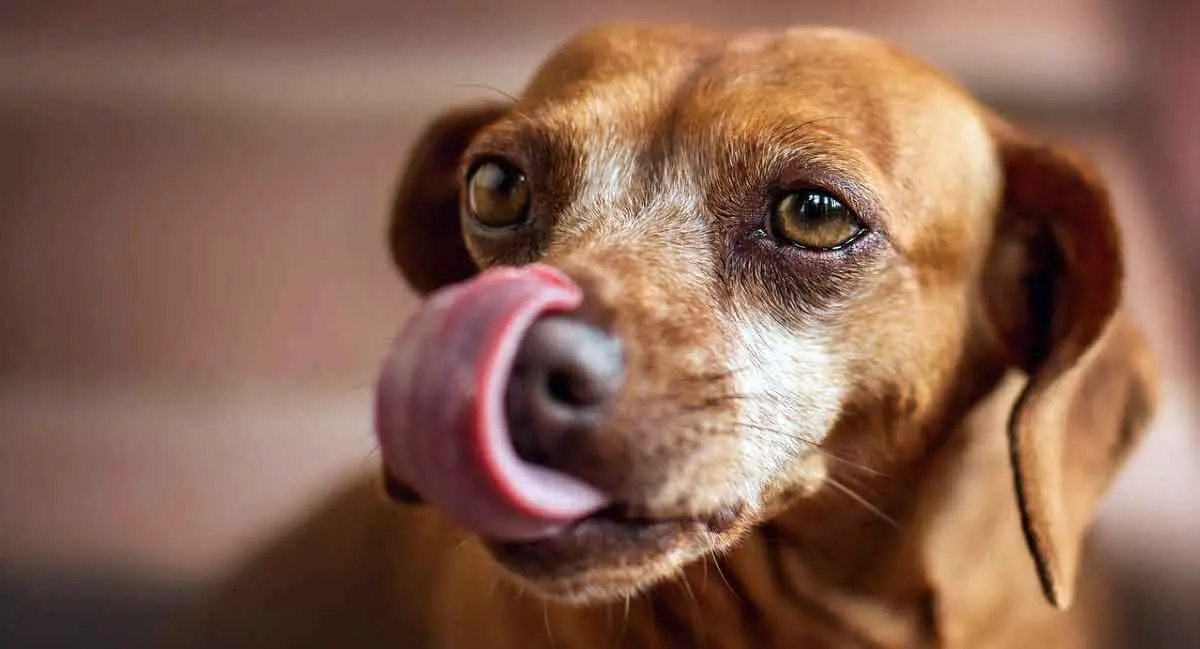
There are several reasons why your dog may lick itself. Pain, anxiety, and boredom are common behavioral reasons. Allergies, skin irritations, and parasites are also causes of excessive licking. If you notice any symptoms of pain or irritation, it is important to get your dog checked out by a vet, so your canine friend can get the most effective treatment.
